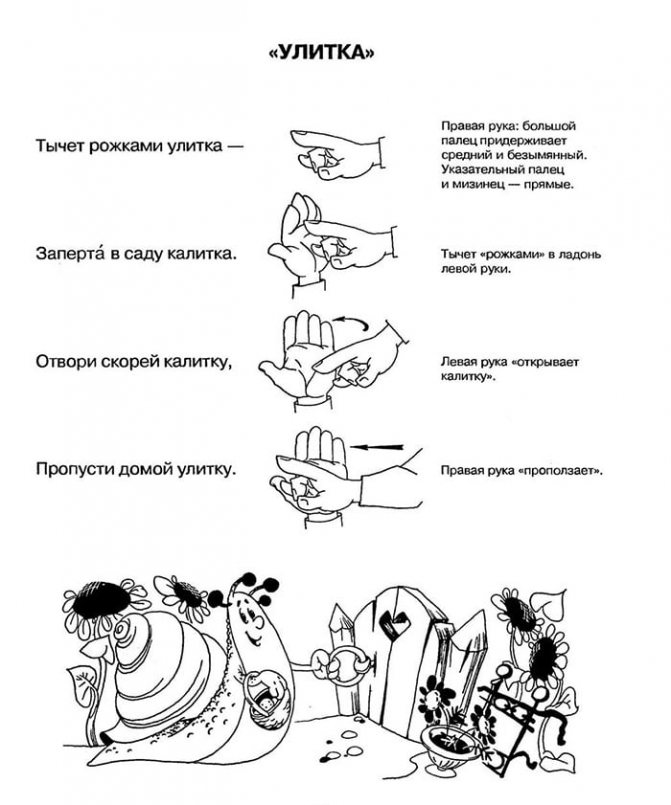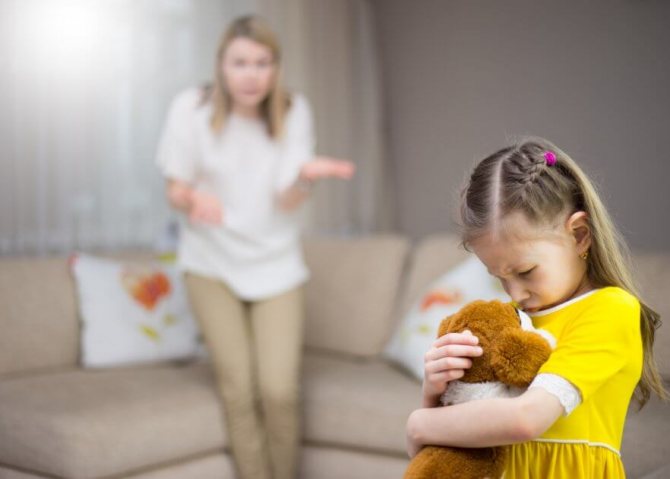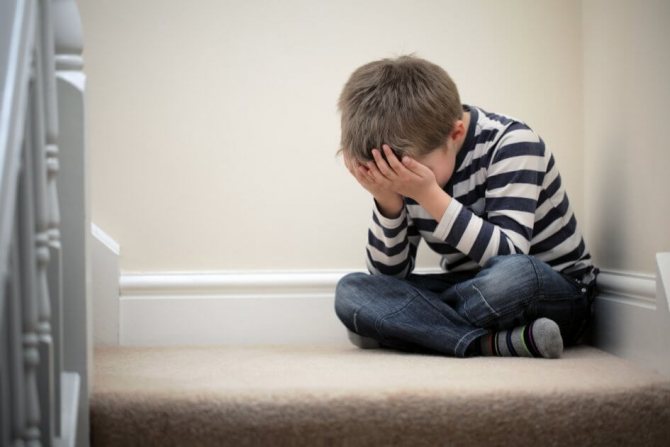The fairy-tale scenario “and they lived happily ever after” is, unfortunately, becoming less and less common. Only bridges are drawn beautifully; for people this process is extremely painful and unpleasant.
Even adults find it difficult to survive the collapse of their hopes; for a child, the divorce of their parents is the beginning of the Apocalypse.
Which is better: the bitter pill of truth or the sweet ignorance? How to inform a child about a divorce without damaging his fragile psyche?
In the eyes of a child, the family is a calm island in the stormy sea of life, and he is afraid to the point of trembling in his knees of losing it.
Without the right to vote, children become hostages of parental decisions. They just stand and watch their world collapse.
Is it necessary to hide the truth?
The child deserves the truth. It’s just that not everyone, due to their age, is able to understand it. You should not discuss divorce with children under 3 years of age.
In a year or two, the child will begin to ask questions on his own. While life has given you a head start, prepare the correct answers. There is no ideal age for such news: a child will be worried at five, fifteen, and thirty. Only the reaction is different.
Children from 3 to 7 years old . The kid does not yet understand high matters and will consider himself the main culprit.
“Dad leaves because he doesn’t love me,” “Mom left because I’m bad.”
The result is predictable: hysterics, isolation, aggression, phobias. The child doesn’t care how old you are, what place you occupy on the social ladder and what religion you profess.
You are his parents, this argument is enough for unconditional love to settle in his heart.
8-12 years old . Children already comprehend the complexity of cause-and-effect relationships and accurately identify the culprit of all troubles.
Resentment, anger, aggression, demonstrative reluctance to communicate... A parent who left the family will have to try to improve the relationship. The child feels unwanted and abandoned.
13-17 years old . Raging hormones and severe stress are an explosive mixture.
Teenagers are very categorical: they violently protest and can permanently break off relations with a parent whom they consider guilty.
More often, boys are “boisterous”: they either blame their mother for not being able to save the family, or completely reject their father’s authority.
Teenage girls are saved by their increased emotionality: tears, hysterics, accusations help to throw out pain and cope with stress faster.
Children who survive their parents' divorce remain the same only outwardly. They mechanically wake up, eat, go to school.
But inside the child is broken: the world, which he considered simple and understandable, has shattered into fragments. Look at the statistics:
- Discipline is violated in 20% of children: they cannot resolve internal contradictions and refuse to recognize the authority of parents who have betrayed trust;
- 31% have a decline in school performance;
- 17% require increased attention. Fights, mood swings, tearfulness, apathy are a serious reason to turn to specialists;
- 9% of children run away from home;
- 6% violently conflict with others.
According to the observations of psychologists, every fifth child diagnosed with neurosis has experienced a parental divorce.
Naughty sound
After the warm-up, they move on to a complex that is designed specifically to teach a child to say the letter B. It is aimed at automatic pronunciation of sounds.
The baby is asked to smile and lightly bite his lower lip with his upper teeth. Then pronounce the sound [v]. An adult can help by lightly pressing their index finger against the child's chin. Correct execution will not work right away, but in this case only persistence in mastering a new skill will help.
When the correct pronunciation begins to work out, you should consolidate it in colloquial speech:
- it takes a long time to pronounce “v-v-v-v-v”;
- practicing direct (va, vo, vy, vu) and reverse syllables (av, ov, iv, uv);
- pronouncing words where the consonant is surrounded by vowels (water, cotton wool).
The peculiarity of the sound [v] is that it is often lost during pronunciation. Therefore, it is easier to pronounce as part of words. Experts recommend choosing simple poems in which capricious letters are often found, and reciting them with your child.

How to start a conversation?
Basically, the role of the messenger with bad news is delegated to the mother, but it is better that both parents are present during the conversation. The child must understand that this decision was made jointly.
Even kids don’t need to lie: at first he will believe that “dad went on a business trip,” but then some “kind” soul will definitely reveal the truth to him.
In addition, children are a room barometer that very accurately senses changes in the family atmosphere. Based on your words, gestures and facial expressions, they can easily recognize an approaching hurricane.

Older children already understand the true meaning of the word “divorce,” but kids imagine it as a kind of monster that will take away mom or dad forever.
Austrian psychoanalyst and best-selling author of scientific books on psychoanalysis, Helmut Figdor, argued that the impact of divorce on a child can be even more significant than the death of a parent.
In simple words, explain to your son/daughter that even if you are not bound by a stamp in your passport, you will forever remain his/her parents.
The thought “Yes, we will no longer live under the same roof, but you will still have a loving mom and dad” needs to be repeated in different variations a thousand times. You need the child to believe in it.
The “Go away and close the door” attitude, limiting contacts with one of the parents and his relatives is the shortest path to severe psychological trauma in a child.
Children are very afraid of change, so you need to convince your child that his life will remain as stable and safe. What else should the child learn from the conversation?
- This decision was made jointly by mom and dad, and they will be happier after the divorce.
- Dad (mom) is not taken away by aliens. He (she) will have his own home, where the baby is always welcome.
- It is not the child’s fault that the parents decided to separate. This happens sometimes in adult life.
- The baby should not be torn between his parents. Don't try to win him over to your side. He has the right to love mom and dad equally, without fear of betraying or offending either of them.
Such a serious topic cannot be discussed in a hurry, so it is better to postpone the conversation until the weekend. You don’t think that the child will give up: “Well, get a divorce,” and calmly go to kindergarten or school?
He will not be able to concentrate in class, and suppressed emotions will definitely find a way out. A broken window or a black eye from a bully classmate is the least a child can do under stress.
How to teach a child to say “mama”?
So, if your baby, according to doctors, is developing in accordance with the norm, he does not have any special problems, but for some reason he has not started talking, parents can force things a little.
The main condition for the correct formation of speech is communication. The biggest misconception of some mothers and fathers is that they think that the child does not understand them yet, and therefore there is no need to talk to him. This is not true at all!
The more you communicate with your baby, the more words will be in his passive vocabulary. This means that over time they will become active. In addition, it is by listening to speech addressed to him that the child learns to speak!
How to communicate with a small child:
- Use the correct forms of words in your speech. Undoubtedly, many kids say “bo-bo” about a scratch or “beep-beep” about all types of transport. This sounds very nice, but parents should not make it easy for their child to learn. Let the “long” words remain in a passive form for some time, but over time the baby will speak as he should!
- Try to speak in simple words that the child can understand. Repeat them many times every day.
- Speak as clearly as possible and face your baby. It is by “reading” articulation that the child learns to pronounce new words.
- Create the illusion of dialogue. Ask questions and answer them yourself. But take a short break, give the child the opportunity to insert a familiar word at one point.
- Talk about everything. Comment on the process of dressing, washing, talk about what you see while walking, and so on. After all, the baby learns the world with the help of his parents.
- Do not turn on television or radio in the background. Such sounds are not perceived by small children as speech, which means they will not teach him anything.
- Use your pacifier less often. How will a baby talk if his mouth is always busy? In addition, constant sucking can ruin your bite and lead to poor articulation.
What should you not tell your children?
To denigrate another
It's so easy to put all the blame on the other parent and remain white and fluffy. But a child doesn’t need to know that his dad is a “rare goat” and his mom is a “soulless bitch”
“Look, Petenka, what a scoundrel your dad is. You won't leave your mother like him, will you? You and I can live together and we don’t need anyone.”
The boy, of course, will console his crying mother and promise her even the moon from the sky, if only she would wipe away her tears. But what will happen inside him?
Petya doesn’t know the scoundrel man, his dad is good: he buys ice cream, teaches him to ride a bike and tickles him funny with his mustache when he kisses him on the cheek.
There is no need to deprive a child of his family. It is better to discuss your issues behind closed doors. When parents stop spitting venom at each other and competing in wits, you can start negotiations.
The illusion of family
You should only talk about divorce if you are confident in your decision. Do not shock with a sudden: “That’s it, today your dad is packing his bags and leaving. He doesn’t live with us anymore,” but explain the situation in advance.

Don't give false hopes. If you are firmly convinced that you will never get back together, do not tell your child that mom and dad will definitely make peace.
Yes, the pill of truth is very bitter, but it is better to give your child time to understand and accept your decision than to feed him unrealistic promises and betray trust.
You cannot let your child think that the safety of your marriage depends on him. This is a dangerous illusion that turns good intentions into vile manipulations. In an effort to keep mom and dad, children create a lot of problems for themselves and those around them.
Disease . Stress can put a person to bed no worse than an insidious virus. Seeing how his parents are fussing around him, the child comes up with an insidious plan. He feigns illness just to keep mom and dad close.
The child’s behavior is reminiscent of an old grandmother who presses for pity, clutching her heart in any situation.
Of course, a little pretender won’t save the family from divorce, but it will fray a lot of nerves.
Despot . A sweet angel is turning into a difficult child before our eyes. He refuses to recognize the authority of his parents, is capricious, and imposes his own rules.
He sincerely believes that mom and dad should ask his opinion before getting a divorce, finding a new couple, or having another child.
Guilt . If a child believes that his parents divorced because of him, this complex will persist for life.
Substitution . Do not allow your child to fill your spouse's vacant position. Do you think a daughter who has been cooking borscht for her dad since she was five years old is happy?
Will a prematurely matured teenager, who works three jobs at less than 16, remember this time with warmth?
You can ask a child for help, but he should not take on non-child responsibilities.

Even if he said: “That’s right, get a divorce, how long can you quarrel?” - sort out the relationship yourself, and just tell him your decision.
Otherwise, the child will then begin to tell his parents where and with whom to live, how many children to give birth to and how to raise them.
The real reasons
Each couple has their own reasons, but children do not need to know about them. Adult explanations like “dad found another aunt” or “we are tired of each other” are completely unnecessary for the child.
It would be nice to give an example of a prosperous family that also went through a divorce: “Like Tanya’s, mom and dad don’t live together. But because of this, her parents did not love her any less: her dad still takes her to the amusement park on weekends, and she goes to her grandmother every summer.”
There is no need to make the argument: “we just don’t love each other anymore” - the teenager already notices that something has changed in your relationship, but the kid may think that he, too, will someday stop being loved and kicked out of the house.
Try not to involve strangers in this process. Two warring camps will only escalate the situation and completely destroy the family structure.
Grandmother, who used to sing papa’s praises about being a golden husband and father, suddenly calls him a scoundrel and a scoundrel. Such a change in polarity is unpleasant for a child who is 50% from mom and 50% from dad. After all, he loves his parents equally!
Adult questions
During a divorce, people often show the worst qualities that they previously kept hidden. They try to turn the child against the partner, forcing him to choose sides.
Sometimes the baby is turned into a carrier pigeon: “Ask dad if he found an apartment,” “Tell mom to come to court the day after tomorrow.”
Find the strength to communicate directly or through a lawyer, and the child must remain a neutral party.

If a child is over 10 years old, he already has to make the most difficult choice of his life: decide with whom he wants to live.
He is not obliged to discuss housing and financial issues. “Dad doesn’t want to pay us child support. How will we live? But it’s almost September, what will you wear to school?” – a nervous mother eats the child’s brains out with a teaspoon.
Perhaps she is looking for simple human sympathy, but the little personality does not perceive it that way. The child feels guilty and sincerely begins to believe that finding money for the family budget is his primary task.
Mom said that tomorrow they would die of starvation. The child will either withdraw into himself or begin to look for ways (and not always legal ones) of obtaining finance.
You are no longer needed
According to statistics, 30% of women prohibit their child from seeing his father. This is a kind of revenge on the man who left the family. But the baby has a completely different point of view.
“Mom says that dad doesn’t love me, that’s why he doesn’t come. And in kindergarten Grandma Olya comes to me, brings me chewing gum and candy and says that it was my mother who forbade me to see me. I want them to stop fighting and everything will be as before.”
Children cannot stop loving a loved one overnight. And it’s all the more painful for them to hear that they got rid of them like an old toy.
It would be correct to say: “We decided to live separately, and dad (mom) is moving to another place. Even if you see each other less often, this does not mean that your parents do not love you.”
New family
For a child, the news of divorce is already extremely painful; there is no need to aggravate the situation with details.
Soon he will understand that mom now lives with Uncle Igor or dad lives with Aunt Marina. Wait until passions subside and your son (daughter) is ready to meet.
In 50% of cases, the child is already negatively disposed towards the parent’s new passion: the influence of relatives, banal jealousy and resentment.
The first year after divorce is especially difficult. These adults are virtuosos of hypocrisy; it is difficult to make a child smile at an aunt he hates, or call someone else’s uncle “dad.”
Seeing that his comments hurt adults, the child can get used to the role of a malicious critic: “But my mother cooks better,” “Dad’s hands grew from the right place, he could fix the faucet himself.”
Of course, offensive comparisons are unpleasant for a person of any age, but for children this is a natural defensive reaction. Be patient and surround your child with care and love.

Out of sight, out of mind
It happens that one of the parents breaks off relations with the family forever. Mom cries at night, burns wedding photos and even takes back her maiden name.
The child perceives this very painfully. Especially if a woman cannot restrain herself and transfers negative emotions to him. “You are as lazy as your father,” “Why are you slouching at the table? Do you want to work like daddy for the rest of your life on medicine?”
There is no need to make a child a whipping girl or a whipping boy. This is a person, not a smaller copy of dad! Yes, now a dark period has come in your life, but there were also bright moments!
I would like nothing to remind me of my ex-partner, but for a child, the world he knows is the only constant.
Try to lead the same lifestyle for at least a few months: do not change kindergarten, school, walk in the same park and go to the zoo on Sundays.
We're left alone
Do not turn your child into an arbitrator, a peacemaker, or a vest for tears. You can often hear the following:
“Well, son, it’s just you and me left. Now you are a man, the head of the family. Mom can’t cope without you.”
The burden of responsibility will put pressure on the child and deprive him of his childhood. In addition, the woman shifts part of the responsibility for what happened onto his shoulders.
You can always turn to friends or relatives for support, and the child will already worry about you.

Bribery of an official
Every normal parent has a heartache for their child. I would like to follow the advice of the Eastern sages: “Pamper your children, because you don’t know what life has in store for them.”
And an adult who feels guilty is soft clay from which you can sculpt whatever you want. Children are subtle manipulators. Even in such a difficult moment, they will not miss the opportunity to sit on your neck.
Don’t try to bribe your child: “Mom didn’t allow you to eat sweets before lunch, but I brought you chocolates,” “Dad never put you in the front seat, but I’ll give you a ride.”
While parents compete in generosity and try to atone for guilt, the child is already trampling their authority into the mud. By indulging his whims, we must not forget that you risk raising a person who will be confident in his impunity.
I give instructions
“Don’t get married, daughter. All men are assholes. We lived in marriage for fifteen years, and he, an ungrateful brute, packed his bags and left. But for him I..."
Such notations are almost always a guarantee that the daughter will remain lonely. She will look at every man through the prism of her mother's contempt.
Over time, this will develop into dissatisfaction, fear of relationships and constant neurosis. “You’re a good boy, don’t upset mom, don’t be like dad.”
A boy who does not leave his mother’s skirt will grow up to be an effeminate sissy and is unlikely to be able to become a full-fledged head of the family.
And it’s all due to overprotection and incorrect life attitudes.
Psychologist Maria Seraya, a specialist in systemic family therapy, has seen from her own experience that children endure divorce extremely painfully: “They develop a lot of fears that must be dealt with.
- Children are afraid that they are no longer loved. Find time to communicate with your child, try to walk, play, and go somewhere together more often. Tell him how dear he is to you, hug him, kiss him, fall asleep together.
- Children are afraid that if one parent lives separately, they will no longer be able to see him.
- Children are afraid that they were the reason for their parents' divorce. It is difficult for a child to understand that parents could separate for reasons not related to him (this is a psychological feature of preschool children). The kid thinks: “They got divorced because I behaved badly, ate badly, didn’t listen.”
The method of “therapeutic fairy tales” can help in overcoming these fears, which describe examples of possible stories, heroes whose parents also decided to separate.
The content of fairy tales must be adjusted based on many factors.
In particular, depending on the child’s reaction to the parents’ divorce. Therefore, you should seek help from a psychologist in order to help not only the child, but also yourself in this difficult situation.”
What parents need to do
First of all, with a child who pronounces sounds poorly and cannot speak well and correctly at 5 years old, you need to make an appointment with a speech therapist. A good specialist, after testing using special techniques, will be able to diagnose the cause of speech disorders. If necessary, he will refer you for a consultation with a neurologist, speech pathologist or psychologist. It happens that a child who shows good promise in speech development suddenly slows down and speaks noticeably worse. Perhaps he had psychological problems and lost his sense of security. In this case, a psychologist and increased attention, care and love from mom and dad can help.
To develop correct speech and expand your vocabulary, you need to speak calmly to your child and not laugh at incorrectly constructed sentences. It is unacceptable to raise your voice at him during classes, because at this age children are already individuals. They just need help.
Tips that teachers and parents should take into account when interacting with 5-year-old children who have speech development problems:
- A five-year-old with an anal vector is not recommended to rush. He must do everything as best he can - slowly. There is no need to scold him for being slow. For him, the best incentive is praise. Children need to read books, look at pictures with them and write simple stories. Such children are encouraged to build structures from cubes and make crafts with their hands.
- Children need incentives. Children of the anal vector should be stimulated. It is recommended to develop a system of incentive prizes for success in pronunciation of sounds. Let him be interested, then the result will come faster. Outdoor games are more suitable for these kids. They are interested in logical tasks, but not complex ones. The difficulty level must be increased gradually, otherwise children’s interest in the activities will disappear.
- Oral babies must be listened to completely. He talks a lot and tires those around him. Therefore, first we teach him to highlight the main thing in his message, and then tell it to people as calmly as possible. Oral speakers should not be rudely interrupted or forced to remain silent: this way the baby will develop into a pathological deceiver. You must behave very calmly with him, do not frighten him with threats and prohibitions, and do not issue ultimatums. Only a monotonous and calm explanation of your requirements helps. Screaming and swearing from adults can even provoke stuttering.
- You can’t not only shout at sound kids, but also speak loudly and sternly to them. Under no circumstances should humiliation of sound children be tolerated. Quiet melodic music, even pleasant classics, is what will put the baby’s nervous system in order. He will be happy to improve his pronunciation.
The psychological component of incorrect speech is the first part of the problem, which specialists will help eliminate. Parents should understand the vector characteristics of their child and follow the recommendations.
Relationships after divorce
Psychologists distinguish four types of couples who have experienced divorce.
- Comrades . The parents become friends and continue to communicate, even though they do not live under the same roof. All problems are solved together and the child does not feel deprived of care.
- Allies . They are forced to maintain communication for fear of offending their son/daughter. They are negative towards each other. The separated parent communicates with the child with the highest permission of the other.
- Enemies . They used to seem like a model couple, but divorce became a stumbling block. Conflicts, quarrels, litigation. Sometimes it comes to the point that one, at the sight of the other, crosses to the other side of the street. Ex-spouses communicate little and only for significant reasons.
- Singles . The stamp in the passport no longer connects them and contact is completely interrupted. The child understands perfectly well that he has no place in the life of one of the parents. No amount of fairy tales about “pilot dad on a business trip” will help overcome the feeling of one’s own powerlessness and loneliness.
Age norms for children's speech development
So, the norms for speech development are as follows:
| Stage of speech development | Child's age | Characteristic |
| Scream | From birth | With the help of a cry, a child communicates with the people around him. Attentive mothers very quickly begin to distinguish between a cry of pain, a cry of hunger, a cry of pleasure, etc. By the end of the first month, the baby is already able not only to scream, but also to focus on the conversations of adults and listens to them. |
| Revitalization complex | 3 months | When the mother appears, the baby begins to smile, wave his arms, wiggle his legs and make sounds. If the “revival complex” does not appear until the tenth week, this is an alarming sign that may indicate a delay in mental development. In this case, you should immediately consult a doctor. |
| Booming | 4 months | The baby reproduces various sounds (the rear lingual consonants “g”, “k”, “x” and familiar vowels are used) and their combinations in any order: “gy”, “kh”, “agu”, etc. Gradually it becomes “singing”, new sounds appear, for example “b”, “p”. |
| Babbling | 6 months | Repeated repetition of syllables: “ta-ta-ta,” “dya-dya-dya,” “ma-ma-ma.” At six to nine months, the baby begins to accumulate a passive vocabulary. If you ask: “Where is mom? Where is the ball (or bunny)? then the child begins to look for these objects with his eyes and turn his head in their direction. Also at this age the baby reacts to his name. Good at distinguishing his own people from strangers. The child actively uses gestures in communication, for example, nodding or shaking his head, waving his hand goodbye. |
| Babbling words | 9-12 months | As babbling continues, a transition to words occurs. So-called babbling words appear (mother, woman, am, give). And even if your baby constantly calls the teddy bear “mi-mi,” consider it a word. |
| “Adult words” | 1.7-1.9 months | Usually, children hear adults speak and repeat the words after them as best they can, while simplifying them (pais-sleep, pissy-let's go, moko-milk). This is acceptable for this age. |
| Offers | 2 years | By the age of two, a child learns to use two-word phrases (lala bah, mama am). From the age of two, proposals appear and develop. 2/3 of what a child says is understandable to others. The concepts of “I” and “mine” begin to appear. |
| Grammatically correct speech | 3-4 years | By the age of three, complex sentences appear, almost all parts of speech, conjunctions, prepositions, singular and plural are used. They know their gender, name, age, parents' names. By the age of four, a child’s speech is grammatically correct, suffixes are used in words, and phrases become more complex. |
Experts evaluate the subsequent development of speech based on the ability to answer given questions, the ability to build sequential chains and compose stories from pictures, talk about an event, retell a story or fairy tale, and the presence of initiative in a conversation.
These standards, like any others, are an average indicator on which specialists (speech therapists, speech pathologists, neurologists) rely when making a diagnosis. You need to strive for them and you need to focus on them. But this does not mean at all that all indicators should be exactly like this. Your baby is individual. It develops at its own pace. The main task of parents is to help their baby move in the right direction, and if necessary, provide him with the necessary help in a timely manner.
A child’s speech is like clay: raw clay is easy to give the desired, correct shape. But is it possible to mold something from already dried clay? The result will certainly be disastrous!
Dear mothers and fathers, remember: it is much more difficult to correct “old” speech defects!!!
Divorce is not a death sentence: what should a child know?
If you put aside emotions and turn on logic, a family in which mom and dad live like a cat and a dog cannot be called a reliable rear.
While parents find out who is boss in the house and test the strength of their opponent’s nervous system, the child lives in constant mental stress.

No one will leave you
It is important to separate peacefully, without breaking dishes or causing bodily harm. Lawsuits are always bad. This is a confirmation of the weakness and inability of two adults to simply sit down and agree.
Of course, if the answering machine constantly repeats: “Don’t call here, you bastard, ever,” and during a chance meeting the parent begins to maneuver like a cruiser in the stream of people, trying to get lost and avoid the conversation, the issue has to be resolved legally. But it's better to do without it.
Talk to your child about the future. Who will he live with, how often will he meet with the other parent, make plans together.
For children, a divorce from mom and dad is a complete unknown, so help him not to balance on the edge of an abyss, but to stand firmly on his feet.
Family traditions
One of the parents no longer lives with the child, but he did not fly to Mars and did not live in a biocapsule that limits contact with the outside world.
Communication should be regular: maybe not two hours, but at least 15-30 minutes a day, it is important for the child to hear his native voice. Phone, Skype and social networks can help you.
Learn to create a routine: the child should know when he will see dad (or mom). This reduces anxiety and helps withstand separation.

Be observant
The first weeks after a divorce are especially difficult. If a child expresses emotions violently and bristles like a porcupine, this is normal.
It is much worse if the child looks indifferent, indifferent, and withdraws into himself. Worsened fears, drowsiness, speech disorders, obsessions are a good reason to consult a psychologist and neuropsychiatrist.
Don’t be shy about your feelings, you don’t need to seem like a granite rock if everything inside is burning with pain. Talk to your child: “I’m also sorry that this happened and I would like to change the situation. But we’ll get through this, life will get better.” You both console your child and show him that you care.
Psychologists recommend a simple exercise to diagnose hidden fears in children.
Ask your son (daughter) to continue the fairy tale: “One boy (girl) returns from school and his mother meets him on the threshold with the words: “Finally you have come. I have news for you." What does she want to communicate?
- Answers from a non-traumatized child: we have guests, we are going to see grandma, there are some changes at work.
- Answers that need special attention: the child believes that they want to scold him, to forbid something, or that someone in the family has died or left. These are signs of serious psychological trauma, which will later develop into complexes and phobias.
Temporarily lower your requirements
Adults throw themselves into work and everyday chores to get rid of bad thoughts, but this method does not work with children.
Don’t rush to stand in the corner for every “deuce” and poke your nose like a kitten into unwashed dishes. The inability to control emotions plays a cruel joke on children, but this is a significant reason for worry!
Warn educators and teachers that this is a difficult period in your family - you will save your son (daughter) from unreasonable nagging and aggravation of the problem. Offer your child your help (explain an unclear topic, prepare for a test).

Don’t brush him off: for you a quarrel with a classmate is a trifle, but for him it’s a catastrophe on a global scale.
Try to find out his experiences and feelings regarding the current situation:
- Does the child think he did something wrong?
- What did mom/dad do wrong?
- Where would your son (daughter) prefer to go on vacation (holidays)?
- Can he schedule time to meet with his estranged parent?
- What good happened after the divorce? What about the bad?
- What do his parents expect from him?
- What does your child regret most?
- Does he have problems that he can't share?
The psychological trauma after your divorce is not a scratch that can be covered with a Band-Aid and everything will go away.
This is a deep wound that will take many years to heal. Try to help your child accept the current situation.
The right to choose
If one of the parents not only leaves home, but builds a new relationship, it is doubly difficult for the children. For them, mom and dad have always been a single whole, and now their well-coordinated tandem has been destroyed by the third wheel.
The child cannot tell his father (mother) who to live with, but he has the right to choose: to meet the parent’s new partner or not.
Situation: “Son, meet me, this is Aunt Valya. Now we live together, but you can come whenever you want” looks completely different in the eyes of a child.
“This is my new family, and you and your mother have no place in it. I quickly found a replacement and it’s not a fact that in a couple of years we will be communicating.”
There is no need to force a child to communicate with the person whom he blames for his parents’ divorce. Meet on neutral territory, take a walk, go to the cinema. Otherwise, a battle of titans will begin in the new family.
Often, at appointments with a psychologist, children share their experiences. Here's what one boy said:
“I hate going to visit my dad. There's always "it". He gets involved in every conversation, always shoving some kind of candy at me like I’m a little kid. I wait all week for the weekend to see my father, but in the end I have to sit and smile at Aunt Olya like a fool. Otherwise he will be offended. I'm tired of it."
Such selfishness on the part of an adult creates an imbalance in the relationship with the son (daughter). Quiet hatred can develop into open conflict, so you have to be a “servant of two masters” if you do not want to lose the child’s trust.
Gradually he will get used to the new balance of power and, perhaps, he himself will want to get to know his mother or father’s new loved one better. But you cannot force “family evenings” on him.
Child development
| Rating 31Psychologists explain why a child's first words are most often the words "mom" and "dad" |
- Type
- Ask
- Send to a friend
- Share
- subscribe to news
As soon as a child is born into a family, parents eagerly wait for him to say his first word and wonder which word he will say first: “mom” or “dad.”
Svetlana, a mother of two children, recalls how her youngest son uttered his first word:
“For about two months now, Sasha has been making various sounds, attracting our attention. And suddenly he clearly uttered this simple word. "Mother". And my heart began to flutter.
My husband and I were in the room at that time and at the same time exclaimed: “God, did he say “mom”?”
But our enthusiasm disappeared as quickly as it appeared. Sasha never said “mom” or “dad” again. It seemed that after saying the first word, he began to move in the opposite direction. When my husband or I entered the room, he would babble something like “papapapapa.” It is unlikely that he put any meaning into his babble, but the husband thought that his son was saying “dad”, and he really liked it.
Recently, there has been some debate among psychologists about whether the first words with repeated syllables (“dada” or “mama”), which a child usually speaks at the age of 7-8 months, can be considered full-fledged words. Psychologists say that they cannot be called words unless they are spoken intentionally, and this usually happens after a year.
A study by American scientists showed that most often the first word among children is “dad”, followed by “mama”. At the same time, children from the age of 6 months can understand the meaning of these words and distinguish between the figures of father and mother, although they still cannot pronounce these words for one or two months.
Scientists came to this conclusion after, during a study, they showed six-month-old children photographs of their parents and pronounced the words “mom” and “dad,” asking them to associate the word with a specific picture. The children coped with this task without difficulty.
Thus, one might think that the child's first words are quite meaningful. However, scientists are in no hurry to agree with this statement. From a phonetic point of view, pronouncing the sound combinations “mom” is easier than “dad”: in the first case, you just need to open and close your mouth with little effort, and pronouncing the sound “p” requires more effort. However, in general, the pronunciation of these sound combinations requires only tension of both lips and voice. Therefore, many fathers are ready to believe that a simple combination of sounds that a child pronounces without putting meaning into it is his first word. Pronunciation of other sounds requires a lot of work from the vocal apparatus, so the child says other words later, when he deliberately makes an effort to do so.
Another possible reason why children are more likely to say the word "dad" first may be that they spend more time with mom, who encourages the child to say the word "dad" more often (for example, when dad comes home from work.).
Psychologists also suggest that in conditions when a child’s vocabulary is still too limited, he uses the sound combination “dad” in any incomprehensible situation.
And, of course, if a child’s first word is “dad,” this does not mean at all that he loves dad more than mom.
Rate this publication
Article rating: 4.43
out of 5 based on
7
ratings.
Related links:
- ▶ Main stages of speech development in children
- ▶ Speech development in a child: how to speed it up
- ▶ How to help a child start talking?
- ▶ Delayed speech development: myths and facts
- ▶ More articles on child development
Child development 01/29/2018
Let's sum it up
It is not easy for a child to accept that his parents become strangers. It is important not to aggravate the situation and avoid the following mistakes:
- do not give false hopes for family reunification;
- do not denigrate your partner;
- do not impose unbearable responsibility on the child;
- do not force adult issues to be resolved;
- do not blame him for the current situation;
- give the right to choose, do not force you to meet a new partner;
- do not prohibit communication with a parent living separately.
Team Growth Phase, Growth Phase
The child does not respond to his name
Any mother closely monitors not only the health of her baby, but also the pace of his development, especially during the first year of life. And young, inexperienced mothers often have the question of when should a child start responding to his name and what to do if this does not happen on time. This article will help you understand these issues.
When should children start responding to their name?
Calling by name is part of speech, so the baby should begin to respond to the name during the preparatory period of its formation, when he develops a primary understanding of the names of objects, usually this occurs in the period from 7 to 10 months. Although many mothers note the baby’s reaction to his name already at 6 months, this may not be the case; he could simply react to his mother’s voice. But do not sound the alarm if this does not happen within the specified period, since each child is different from other children and develops according to his own individual schedule. After all, there are children who by the age of 10 months already speak several words, and there are others who begin to speak only by the age of 2 years.
Possible reasons for lack of response to a name
- problems in the hearing aid;
- deviation in psychological development;
- lack of communication;
- costs of education.
What to do if the baby does not respond to his name?
To determine the reason why a child does not respond to his name, after a year you should consult the following doctors:
- otolaryngologist or audiologist - to check the child’s hearing; cases of hearing loss are especially common after illnesses of the respiratory system, ear, nose or throat (for example: otitis media) or in case of congenital problems. It is recommended to conduct a hearing test at home before visiting a doctor, and then report the results to a specialist. After the examination, you will definitely be given recommendations on how to improve your hearing level, and the child will begin to respond to the name;
- neuropathologist, psychologist - to determine whether the level of psychological development corresponds to age. Since the lack of reaction to one’s name in a child at the age of one year is a characteristic behavioral reaction for children who are subsequently diagnosed with developmental delay, autism or communication disorders, and are sent for a more thorough examination.
If your child understands speech addressed to him, is interested in the sounds that he hears around him, but there is no reaction to his own name, then it follows that his development is proceeding normally, and the reason lies in his lack of understanding that this his name, or he knows about it, but simply does not want to respond due to his character.
Tips: how to introduce a name correctly?
Starting from 3-4 months, the child must be introduced to his name, make it clear that it means him. This can be done according to these rules:
- showing him any object, say the name of the object, and then, touching the child, his name;
- when addressing him, use only one or two forms of his name, and not the affectionate diminutive “bunny” or “sun”;
- when you are going to pick him up or approach him, first call him by name and wait for a reaction;
- Call the child by name more often, putting it at the beginning of the sentence, especially when you want to interest him: “Roma, look what mom brought!”
- play with objects with him.
Sometimes it happens that a child simply ignores his name, especially after a year, then you need to pay attention to the behavior of the parents themselves, maybe the child is simply spoiled by their attention, and he does not need to react when his name is called. In this case, you need to contact a psychologist who will help you build the right line of behavior in the family.












